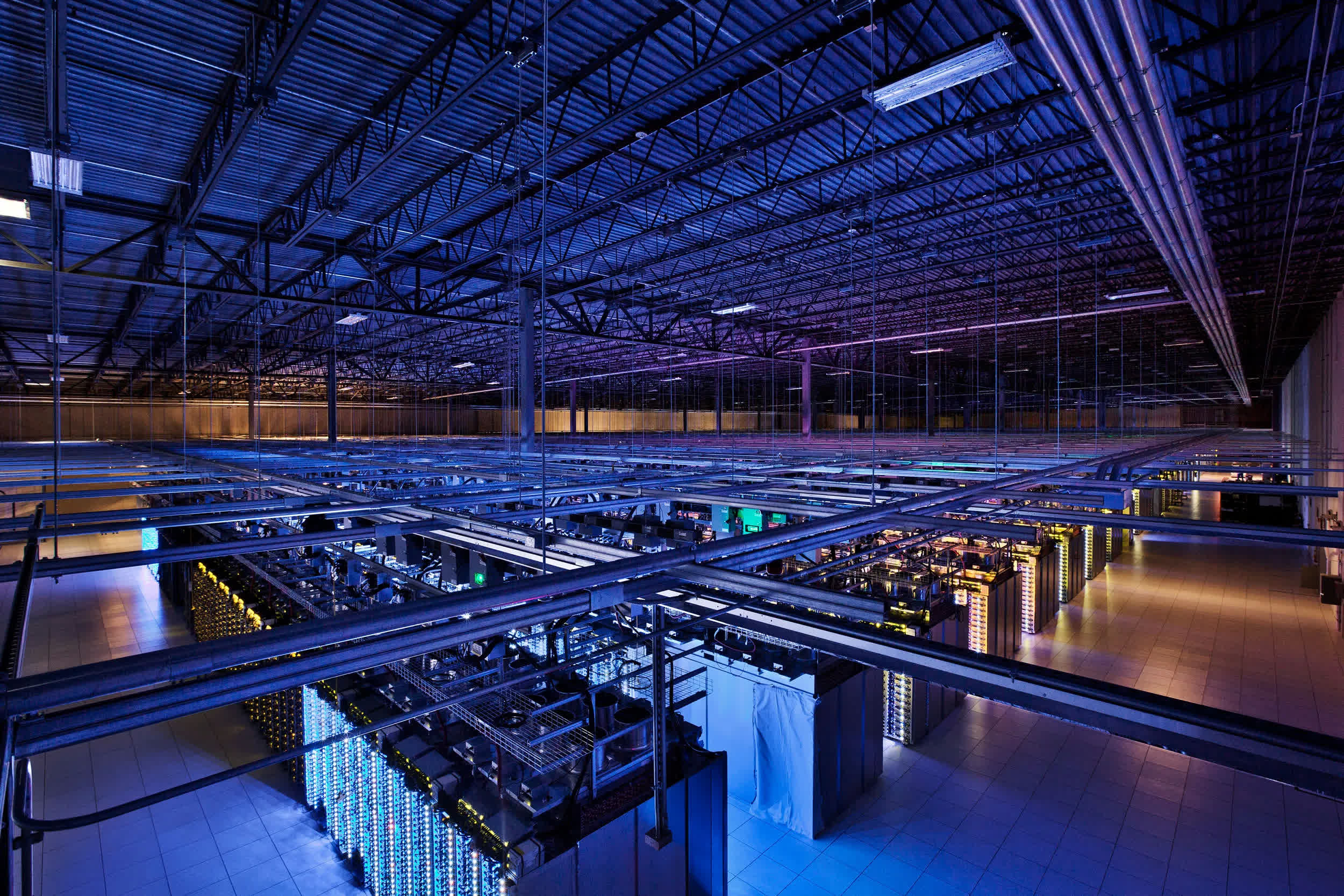Why it matters: Making cloud servers and data centers more efficient is a crucial step in the push to increase sustainability and reduce carbon emissions. However, one company has started drawing attention to what it calls "data wastage" – the retention of large amounts of data no one accesses – and the factors making it difficult to cut back.
Up to 70 or 80 percent of the data that some companies store goes unused, according to enterprise data infrastructure provider NetApp. The company has recently started bringing attention to the issue to help clients meet sustainability goals.
NetApp Chief Technology Evangelist Matt Watts recently told The Register that storage comprises 15 to 20 percent of data center power consumption. Furthermore, a national survey indicates that cloud usage of the UK's power grid could grow from 2.5 percent to six percent by the end of this decade.

NetApp provides data tools for clients like Microsoft, Amazon, and Google. Last April, it published a report on the difficulties of tackling data wastage. Watts initially reported that around 41 percent of stored data is never accessed, but he has since revised the number to as much as twice that in certain areas.
Most leading IT figures believe that cutting back on unwanted data could help reduce carbon emissions, but many companies lack the resources. Some don't have enough time or find differentiating between valuable and unwanted data too daunting.

Obviously, companies that handle clients' data also don't want to cause trouble by deleting information someone might need. Watts highlighted disagreement and confusion in some organizations about whether IT departments are the owners or simply the caretakers of the data they manage, which can present an additional roadblock.
NetApp's BlueXP classification tool, part of a service that gives client companies unified control over diverse data infrastructures, was a significant factor in revealing the scale of data wastage. It retrieved metadata from its data center clients, showing who owned their stored files and when customers last accessed their information.
The issue comes amid NetApp's controversial decision to remove BlueXP's support for services like Google Cloud, Amazon S3, and OneDrive. Watts said that NetApp intends to focus on its internal storage systems instead so the company could stand out.
Data waste: According to study, a significant portion of stored server data is never accessed